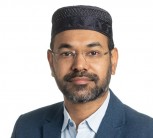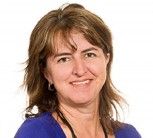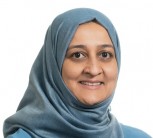The University of Pretoria (UP) is representing South Africa in a multinational, cross-continental project that aims to enhance food and nutrition security in Africa, and open the door to export markets.
InnoFoodAfrica is a three-year project focused on South Africa, Ethiopia, Kenya and Uganda, but extended to form a multidisciplinary consortium of 20 partners – 15 in Africa and five in Europe. The project is being funded by the European Union’s Horizon 2020 programme to the tune of €6,5m (R115,6m), with an envisaged economic impact of €7.5bn (R133bn).
The impact refers to outputs being achieved. If business created after this project was positive in terms of farming and food manufacturing, or if diet-related non-communicable diseases or pollution in the environment were lowered, and bio-based packaging increased, “that could be the impact”, said Professor Naushad Emmambux of UP’s Department of Consumer and Food Sciences.
Prof Emmambux, who is also the research leader for food processing at the DST-NRF Centre of Excellence in Food Security – which UP co-hosts with the University of the Western Cape – is the principal investigator of the South African leg of InnoFoodAfrica.
UP has been involved from the start. Prof Emmambux wrote the funding proposal with Dr Raija Lantto, principal investigator at the VTT Technical Research Centre of Finland. VTT is now coordinating the project, which began in August 2020.
One of its goals is to develop new ways to add value to the cultivation, processing and production of climate-smart African crops. “Crops like sorghum, finger millet, teff, amaranth, faba bean, orange-fleshed sweet potato, Bambara groundnut and cowpea have great nutritional value, but they are underutilised due to technological challenges in the preparation of food products and acceptable quality for urban consumers,” said Dr Lantto.
The project is split into seven work packages, which include researching each country’s nutrition status and its link to diet-related diseases, empowering farmers, manufacturing of healthy foods and food ingredients, and creating bio-based packaging that is edible or mostly biodegradable.
InnoFoodAfrica’s ultimate aim, however, is to improve food and nutrition security in Africa, said Prof Emmambux.
More detailed goals include:
Besides educating its target groups about improved eating habits, InnoFoodAfrica also wants to increase the diversity of affordable, nutrient-dense and healthy food products based on local crops.
This is one area where UP is playing a big role; by developing new food products. As Prof Emmambux’s colleague at UP, Professor Riëtte de Kock, who is also involved in the project, said: “The nutritional value of uneaten food is zero. A food product may contain lots of nutrients, but if it is not acceptable it will not be of any use. It needs to be both appealing (‘I want to eat it’), and acceptable (‘I consider it as recognisable and appropriate food in my culture’).” Addressing malnutrition in African countries requires nutrient-dense foods that are appealing, acceptable, available, accessible and affordable, she said.
One of the products they are working on is flour from orange-fleshed sweet potatoes. These contain beta-carotene that, when converted into vitamin A in the body, helps boost the immune system. However, these potatoes have a short shelf life of two to three weeks, so the UP team is making flour from them, which expands the number of ways the potatoes can be used. Together with Delphius Commercial and Industrial (CIT) Technologies, they are developing processing equipment that retains more beta-carotene and uses less energy during the drying process.
UP has also developed a fat replacer that it has applied to patent. It reduces the fat content of food but keeps its desirable qualities by mimicking its lubrication, in much the same way oil reduces friction and lubricates parts of a machine. Completely natural, it is made from starch, with the addition of about 2% lipids (fatty acids or their derivatives). “People like fatty food because it’s a very nice feeling in the mouth. So if we can make something that tastes similar to fat, but doesn’t have the negative aspect of fat, that is a win,” said Prof Emmambux.
“We are modifying flours that have a high glycemic index (GI) to make them low-GI,” he said. These flours are used to make snacks similar to the popular cheese puffs, but which are high-protein and high-fibre and so especially suitable for children.
InnoFoodAfrica involves a multidisciplinary range of specialists at UP, from food scientists to sensory scientists, nutritionists, agronomists, and agricultural economists. It also includes postgraduate students – six PhD and four master’s students, as well as four postdoctoral fellows.
The project has also extended to the Faculty of Humanities. Professor Shakila Dada, Director at UP’s Centre for Augmentative and Alternative Communication, is applying its strategies, such as graphic symbol supports, to ensure nobody is excluded from the research because of low levels of literacy, or not speaking the language of the researchers.
“Our main role is to ensure that the materials, instructions, surveys and communication about the project are accessible (easy to read) and understood,” she said. She also liaises with the Faculty’s Department of African Languages for project materials to be translated. “This ensures a more inclusive, equitable research agenda, ensuring that participants who may be otherwise marginalised are now included in the research process,” she said.
For more information, see http://innofoodafrica.eu
Click on the gallery in the sidebar to learn more.
Professor Naushad Emmambux , Professor Riëtte de Kock, Professor Shakila Dada,
February 11, 2021

Professor Mohammad Naushad Emmambux completed his undergraduate studies at the University of Mauritius and his postgraduate studies at the University of Pretoria (UP). He has been with UP for 22 years, and has been doing research for 16 years.
“UP is a globally recognised, research-intensive university that provides a platform for growth, independent thinking and for making a difference to society,” he says.
Prof Emmambux’s research is centred on the following:
His research contributes to the betterment of the world because it falls within the area of food and nutrition security. It addresses several Sustainable Development Goals (sDGs) including SDG 2: Zero Hunger and SDG 3: Good Health and Well-being.
Prof Emmambux leads the food biopolymer research group in the Department of Consumer and Food Sciences; co-leads the technological innovation programme at the Department of Science and Innovation (DSF)/National Research Foundation (NRF) Centre of Excellence in Food Security; and leads the EU-funded InnoFoodAfrica project at UP. The two latter projects are cross-faculty initiatives that involve UP’s Faculties of Humanities, Health Sciences and Engineering.
Over the past 18 months, Prof Emmambux and his research team have been working on reducing the glycaemic index (GI) of maize meal.
“We have found that complexation of starch with lipids as well as heat-moisture treatment increased the resistant starch content in maize meal porridge,” he explains. “The latter had a lower GI and the resistant starch comprising of amylose lipid complexes showed good prebiotic effects as it promoted the growth of good microbes and produced beneficial free fatty acids. We have a patent for manufacturing starch microspheres that are stable under mechanical stress. The starch microsphere can be used to mimic fat globules in food systems. Thus, we can reduce food calories by replacing fat.”
The team has also shown that household-level technologies such as a microwave can change the oral processing properties of food to accommodate babies from the age of six to 24 months when complementary foods are introduced. “This will help to increase the nutrient density of complementary foods,” Prof Emmambux says.
A recent highlight for the professor was presenting the EU-sponsored project InnoFoodAfrica at the New European Bauhaus Festival in June 2022.
The research team has started two new projects: making protein nanofibers, which will be used as human tissue scaffolding, and making use of green chemistry to modify proteins from indigenous African plants; these proteins can be used in gluten-free alternatives.
Prof Emmambux says his research matters because he and his research team are pushing scientific boundaries in the field of food science and technology. “We are making a difference by solving African and global problems related to food and nutrition security.”
While no specific person has inspired him in his research effort, he says, “all my teachers, lecturers and supervisors are my role models and they have inspired me to become a good scientist”.
He hopes to mentor the next generation of scientists who will help to create a better world for the future. His advice to school learners or undergraduates who are interested in his field is this: “If you have a curious mind and want to make a difference in the world, join the field of food science.”
In his spare time, he meditates, spends time in nature and travels.


 Story
Story
University of Pretoria (UP) researchers have found that the antioxidant content of certain types of tea can be likened to that found in recommended portions of fruit and vegetables.
 Infographic
Infographic
Half a cup of black tea, oolong tea or green tea contained the same amount of antioxidants with radical scavenging capabilities (RSC) as that of a 200mg vitamin C tablet.
 Story
Story
Researchers at the University of Pretoria (UP) may have identified the gene that is responsible for diet-related obesity. By exploring the role of the novel gene Slc7a8, they have made a potential breakthrough in current knowledge about the cellular mechanisms that drive fat accumulation. This understanding is crucial in developing effective treatments.
Copyright © University of Pretoria 2025. All rights reserved.
Get Social With Us
Download the UP Mobile App